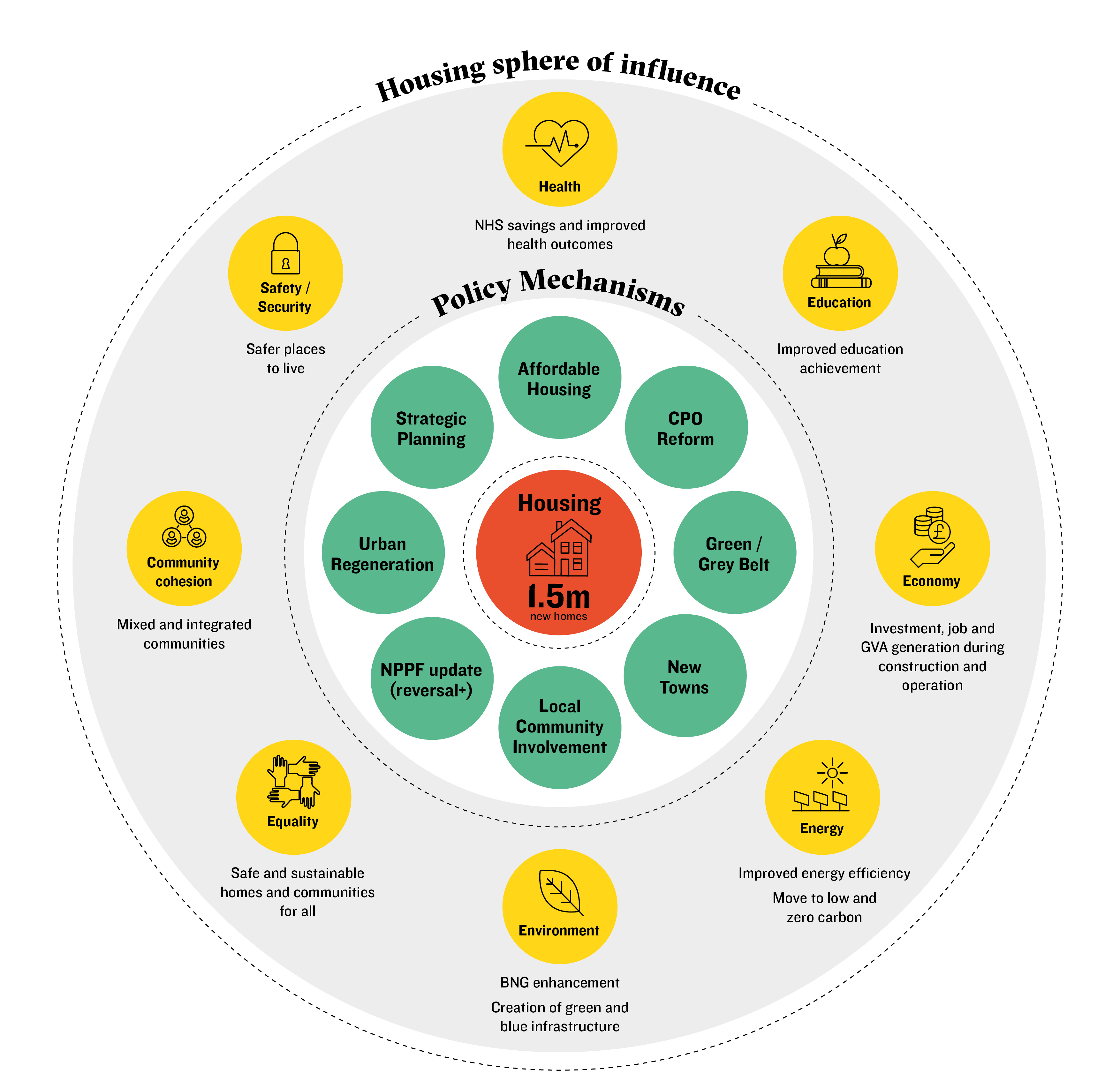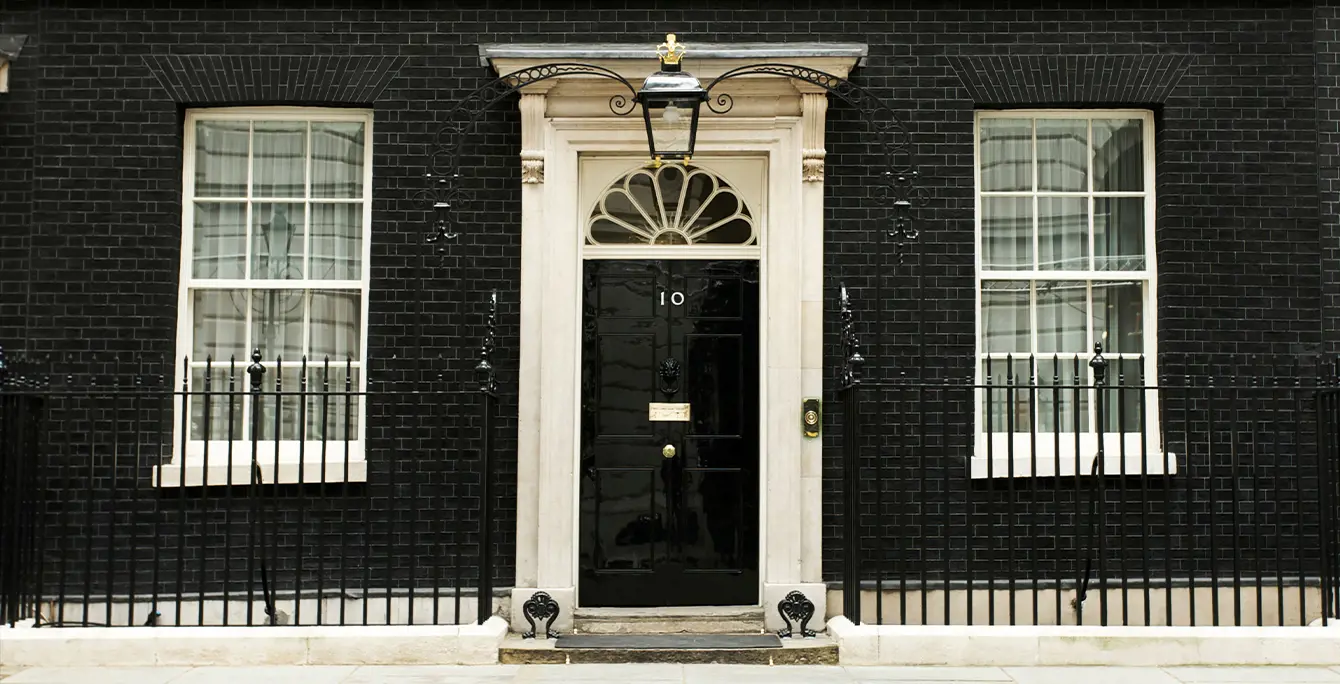As the chimes of Big Ben told us that the last vote had been cast, the exit poll results echoed what the opinion polls had been telling us for nearly two years – that Labour would win the General Election. At 4.42am the (former) Prime Minister conceded defeat and 18 minutes later, at 5am, the result was confirmed as Labour’s 326th MP was announced, resulting in a Parliamentary majority. The sun then rose on a new dawn on British politics.
This was a night of political high drama. Perhaps most fascinating of all was not that Labour had won, but that the shift that has happened over the course of a single term of Parliament. Equally dramatic was the fact that so many leading Conservative figures have lost their seats. With Michael Gove’s announcement that he would not seek re-election, we knew going into the election campaigns that we would have a new Secretary of State, regardless of the election outcome. But the overnight results saw 11 Cabinet Ministers lose their seats, with big names such as Grant Shapps, Penny Mordaunt, Gillian Keegan and David TC Davies no longer serving as MPs. This leaves questions as to shape and form – and the effectiveness – of the opposition, at least in the short term.
At the time of publishing – 10am on Friday 5 July – we are still waiting for the last four seats to be called, but we know that the new Labour Government has a majority of at least 177 – a scale that closely mirrors that achieved by Tony Blair in 1997.
The political arithmetic matters, and not just for the history books. With a majority as large as this, it gives the new administration a strong mandate and becomes much easier for the Government to push through its agenda in respect of all areas of policy, including – as we have been considering in this series – housing.
Our colleague, Matthew Spry, has provided a comprehensive review
[1] of what it will take for Labour to achieve its manifesto pledge of delivering 1.5 million new homes over the course of the new Parliament. As we set out at the start of this campaign period
[2], housing represents one of the key domestic policy challenges. Housing delivery has remained consistently and significantly below the identified “target” of 300,000 net additional dwellings per annum to meet need. This under-supply has contributed to the ratio of median house prices to median workplace-based earnings getting higher, having increased from 3.54 in 1997 t0 6.85 in 2010 and on to 8.26 last year
[3]. A consequence of this increased unaffordability is that fewer than half of households under the age of 44 are homeowners
[4]; and more than double the number households now living in temporary accommodation than in 2010
[5]. The timely delivery of more new homes is critical.
Throughout their campaign and in its manifesto, Labour has emphasised the importance of the planning system – and delivering housing – as a mechanism to unlock economic growth. This association cannot be over-stated. However, housing also contributes to a wide range of broader social, economic and environmental objectives. This is illustrated in the graphic below which summarises the key policy areas which stand to benefit most from the delivery of 1.5 million homes, and the mechanisms that we already know that Labour will utilise to achieve this.

Our previous Insight
[6] investigates how Labour plan on using its large majority and strong mandate to meet this target. However, it also emphasises how time is of the essence. To this end, it is expected that Labour will hit the ground running, with reports suggesting that major housing announcements will be made
“within a fortnight” from now
[7]. One of the first moves we can expect from the new Government is for it to follow through on its vow to update the National Planning Policy Framework within the first 100 days (with a draft published before the summer recess), in order to undo what it calls “
damaging Conservative changes, including resorting mandatory housing targets.” [8] This would also give scope for wider amendments, which will signal the Government’s intent and expectations for decision making by planning authorities and Planning Inspectors.
It is positive that the Labour Manifesto recognised the importance of housebuilding for the economy by placing its housing pledges in the ‘kickstart economic growth’. But housing is imperative for so much more of what Labour wants (and needs) to deliver, as evidenced by the housing sphere of influence in our graphic above. Meeting housing need will be essential for health, wellbeing, security, environmental protection, social cohesion and so much more.
After six weeks of relentless campaigning, the hard work must now start for the Prime Minister and his new Government. The time for making promises and pledges has now passed and the time for action has begun. The success of the new Labour Government over the next Parliament will, in part, be judged on its ability to deliver the 1.5 million new homes promised in the Manifesto. Whether Labour’s proposed plans and measures will be sufficient in this regard remains to be seen.
[1] A new dawn has broken, has it not? (lichfields.uk)
[2] https://lichfields.uk/blog/2024/may/23/43-days-to-pledge-to-solve-the-housing-crisis
[3]https://www.ons.gov.uk/peoplepopulationandcommunity/housing/datasets/ratioofhousepricetoworkplacebasedearningslowerquartileandmedian
[4] 2021 Census
[5] Source: DLUHC Statutory Homelessness Live Tables
[6] General Election 2024 (lichfields.uk)
[7] Labour to make major housing announcements ‘within a fortnight’ of winning the election | News | Housing Today
[8] Labour Party Manifesto 2024: https://labour.org.uk/change/




